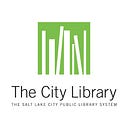The Fine Free Library: One Year Later

Tonight, Pam and her daughter Zion are going to have a supper of homemade bread and baked beans, then sit down to read a book from the series that inspired the meal, Little House on the Prairie. The pair visits The Big Library in the City every day. Zion, age 6, sports a big smile as she runs around the Children’s Library at Main and adds books to her stack. This summer, they’re working their way through both the Little House on the Prairie books and the DVDs, and Zion even has a ragdoll named Charlotte, just like Laura Ingalls. “Getting rid of fines has really changed the way we use the Library,” Pam said, adding that their frequent visits wouldn’t have been possible in the era of late fees. “I’m a single mom and I simply couldn’t afford to come to the Library if there were still late fees. But this has taken so much stress off of me. I’m not afraid to take books out anymore. Coming to the Library is such a pleasure.”
Every few years, a news story pops up about someone returning a book to the public library that’s been overdue for decades and the astronomical late fees that have accrued. There’s a reason this is a popular story: anyone who has used a library in the last century is familiar with the sting of late fees. Some people — like Pam — are all too familiar, and a forgotten book here or there in the life of a busy mom can lead her to stop using libraries altogether.
The Salt Lake City Public Library recognizes that in this ever-changing world, libraries need to listen closely to the community and adapt to their needs. While traveling to a library conference in 2017, City Library Executive Director Peter Bromberg asked his Lyft driver for her thoughts on libraries. According to the Salt Lake Tribune, “She told him she grew up loving her library, but now, with three kids ages 7 to 15, the late fees were ‘like having an extra credit card bill that we couldn’t afford at the end of the month.’”

In May of 2017, The City Library Board of Directors voted to eliminate late fees at all eight Library locations. The Fine Free policy went into effect on July 1, 2017. Prior to the policy change, late fees accounted for just 0.3% of The City Library’s total revenue.

Libraries across the country have acknowledged the barrier that fines can create between them and the community they serve. American Libraries Magazine described a February 2018 conference panel discussion between Bromberg and other Library leaders: “Sarah Houghton, director of San Rafael (Calif.) Public Library, said fines get in the way of a library’s mission to serve the entire community, regardless of socio-economic standing. Barriers exist for some populations to pay fines, and by enforcing them, libraries are subverting their core values.”
The benefits of eliminating overdue fines have been clear. At the February panel, Bromberg said that checkouts were on the rise at Salt Lake City Public Library, and the number of new cardholders rose 3.5%. “Getting rid of fines brought new people into the library and allowed previous users to return,” he said.

Now that a full year has passed since it went into effect, it’s more clear how the Fine Free policy is affecting the culture of The City Library. “Without fines, more community members are stepping into the Library, and this allows us to better fulfill our mission,” said Tommy Hamby, The City Library’s Data Coordinator. “The number of items checked out during the 17–18 fiscal year increased 16% from the previous year. We also signed up nearly 26,000 new cardholders.”
“When a mother of four brings in a stack of picture books a week late and wants to know if she can get some new ones, I get to say, ‘Yes!’,” said Tanya Platt, Circulation Assistant at the Main Library. “All those ‘yeses’ contribute to building a better relationship with our customers because they can see us as allies. And that feels really good!”

